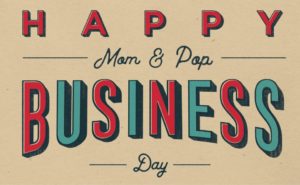Next insurance and Amazon partner to offer small business insurance…
Amazon takes on business insurance with insurtech partnership (Business Insider)
The US-based small business insurtech is easing Amazon Business Prime members’ access to a wide range of policies, including general liability and workers’ compensation, per PR Newswire. Founded in 2016, Next Insurance uses AI to tailor coverage to small businesses. Amazon Business Prime provides businesses with fast shipping, discounts on products they buy the most, purchasing and spending analytics, and more.
Partnering with the tech giant is a huge win for Next Insurance, further diversifying its distribution channels. The insurtech’s gross written premiums doubled to $200 million in 2020 thanks to its AI-powered underwriting driving down prices by up to 30% compared with traditional policies and customizing online quotes in less than 10 minutes.
Biden’s rescue plan isn’t really a rescue for small businesses? …
Biden stimulus plan offers less help for small businesses (CBS)
The Biden administration acknowledges that small businesses continue to face an “immediate crisis” because of the economic fallout from the coronavirus. Yet the American Rescue Plan — the $1.9 trillion emergency relief package that President Joe Biden helped push through Congress with Democratic lawmakers — provides far less support to small businesses than previous rounds of pandemic relief.
Direct aid to small businesses accounts for $50 billion of the $1.9 trillion plan, or just 2%. That’s far lower than the two previous coronavirus relief bills that lawmakers have passed. For example, the Coronavirus Aid, Relief and Economic Security (CARES) Act in March 2020 provided nearly $400 billion — or nearly 20% of the roughly $2 trillion measure — in forgivable small business loans and grants.
There is a new sheriff in town at the SBA …
Isabella Casillas Guzman Confirmed as the new SBA Administrator (SBA)
Isabella Casillas Guzman has been confirmed as the 27th Administrator of the U.S. Small Business Administration. On March 16, the U.S. Senate confirmed President Joe Biden’s nominee with broad bipartisan support, 81-17 votes as Administrator of the SBA. Guzman will represent the more than 30 million U.S. small businesses and lead an agency committed to helping small business owners and entrepreneurs start, grow and be resilient.
“SBA must continue to be a lifeline for small businesses in the months ahead, and I am confident that Isabel Guzman is the best person to lead the agency out of the pandemic and through the economic recovery to follow,” said Senate Committee on Small Business & Entrepreneurship Chair Ben Cardin (D-MD). “Mrs. Guzman’s commitment to equity and her deep knowledge of the needs of small businesses will make her a strong advocate for all small businesses in the Biden Administration. I am looking forward to working with Mrs. Guzman as we in Congress work to fine-tune SBA to better meet the needs of small businesses in Black, Latino, Native, and other underserved communities.”
Show love to the kids …
4 inspiring small businesses you’ll want to support — all run by kids (TODAY.com)
We already knew that children are the future. But some kids are proving that the future of business is now. TODAY Lifestyle and Commerce Contributor Jill Martin shared her top picks for the best small businesses run by kids. Each of these kids not only makes a killer product but has an inspiring story. They’re all socially-minded and know that good business goes far beyond just making money.
From environmentally conscious bamboo products to zany socks that give back to charity, scroll through to discover four of the most inspiring small businesses run by kids today.
Some good news…
US small business index rises despite 76% of firms still fearing virus’ impact, Chamber of Commerce says (Business Insider)
A popular measure of small business activity improved in the first quarter, but underlying components suggest the segment’s recovery has a long road ahead. The MetLife and US Chamber of Commerce’s Small Business Index gained to 55.9 from 52.9 in the current quarter, according to a Tuesday press release. The reading marks a third-straight quarter of recovery, yet the gauge remains well below the pre-pandemic highs of roughly 71%. The pace of improvement has also slowed as lengthened lockdowns and still-elevated case counts dragged on activity.
More good news …
More Than Half Of Small Businesses Have Reopened: Survey (CFO)
More than half of U.S. small businesses are fully reopened as local or federal pandemic shutdowns ease, according to a report from Kabbage, an American Express-owned fintech.
What Happened: As part of an effort to track U.S. small business growth through 2022, Kabbage polled more than 550 small business leaders. The survey tracks key performance metrics, including headcount, revenue, profit, online strategies, as well as future outlooks, to provide insight into how U.S. small businesses are recovering and adapting amid the pandemic.
Not so good news …
U.S. Small Businesses Are Holding Off the Debt Apocalypse. For Now (Bloomberg)
Government relief programs and lenders’ forbearance have kept U.S. small businesses from defaulting on their debt en masse as revenue slumped during the pandemic crisis, according to a new analysis. Among small firms nationwide, 18.3% of business payments were past due in January, a modest increase from 17.7% in February 2020, the Urban Institute said in a report using Dun & Bradstreet data. Somewhat more affected were two big cities on the coasts, New York and San Francisco, which saw increases of 2.5 and 4.3 percentage points, respectively.
How 5 Small Businesses Reinvented Themselves During Covid (INC)
March 11, 2020, is often said to be the date that Covid-19 began in the United States. That was the day the World Health Organization declared it a global pandemic. But each person likely has a different day in their minds, the day it really started making a personal impact–whether it’s when their kids stopped going to school in person, the moment they had to close their shop doors, or when they began feeling nervous about running everyday errands like going to the grocery store.
The pivots took on many forms. Restaurants sold toilet paper and turned their dining rooms into grocery aisles; bars sold cocktails by the pitcher; salons created at-home hair coloring kits; event companies went digital and threw virtual parties. These changes worked for the interim, but it quickly became clear that developing a long-term strategy would be critical.




